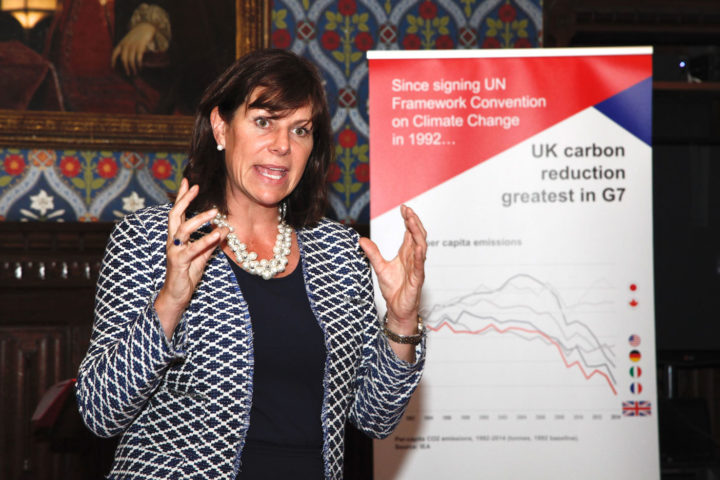Comment on Clean Growth Strategy
Clean Growth Strategy marks a sea-change in top-line thinking about the low carbon economy, says Richard Black
By George Smeeton
info@eciu.netShare
Commenting on the publication of the Government’s Clean Growth Strategy today, Richard Black, director of the Energy and climate Intelligence Unit (ECIU) said that the plan sends a clear message that the Government sees the UK’s future as low-carbon.

“The Clean Growth Strategy marks a sea-change in top-line thinking about the low carbon economy. Under George Osborne, the language was always about the costs, about Britain not doing more than other countries, as though every wind turbine came clothed in a hair shirt,” he said.
“By contrast, Theresa May’s Government evidently sees developing a low-carbon economy as good for jobs, good for issues such as air pollution, and a route to growth for UK plc – a belief underpinned by the fact that the UK has the best record of any G7 country in growing the economy and cutting carbon emissions.
“There are many areas where more detail needs to be added - particularly on energy efficiency where the goal is clear but the route to achieving it isn’t. Nevertheless, there is no doubt that ministers have produced a strategy that if delivered, can ensure Britain meets its national and international commitments on reducing carbon emissions while bringing society other benefits along the way.”
Dr Jonathan Marshall, energy analyst at ECIU, said that the strategy sees Britain reaffirming its role as a climate leader.
“Having already made stellar progress in decarbonising the power sector, the clean growth plan has set the bar high on how the Government will tackle the transport and heat sectors. Although many of the policies have been announced before, and there remains a gap between the expected outcome of current policies and legally-mandated carbon targets, reaffirming dedication to cutting emissions across the country shows that the UK is not willing to give up its role as climate leader, despite recent political shocks,” he said.
“Forward thinking plans on efficiency should see the amount of energy wasted in homes and businesses fall dramatically, cutting bills and boosting competitiveness, while long term plans to remain at the forefront of electric vehicle technology gives the UK another chance to claim a stake in a burgeoning industry, as it has done in the wind sector – although more clearly needs to be done. Rather than fearing that environmental standards may fall behind the EU after Brexit, the EU should now be concerned if it can keep up."